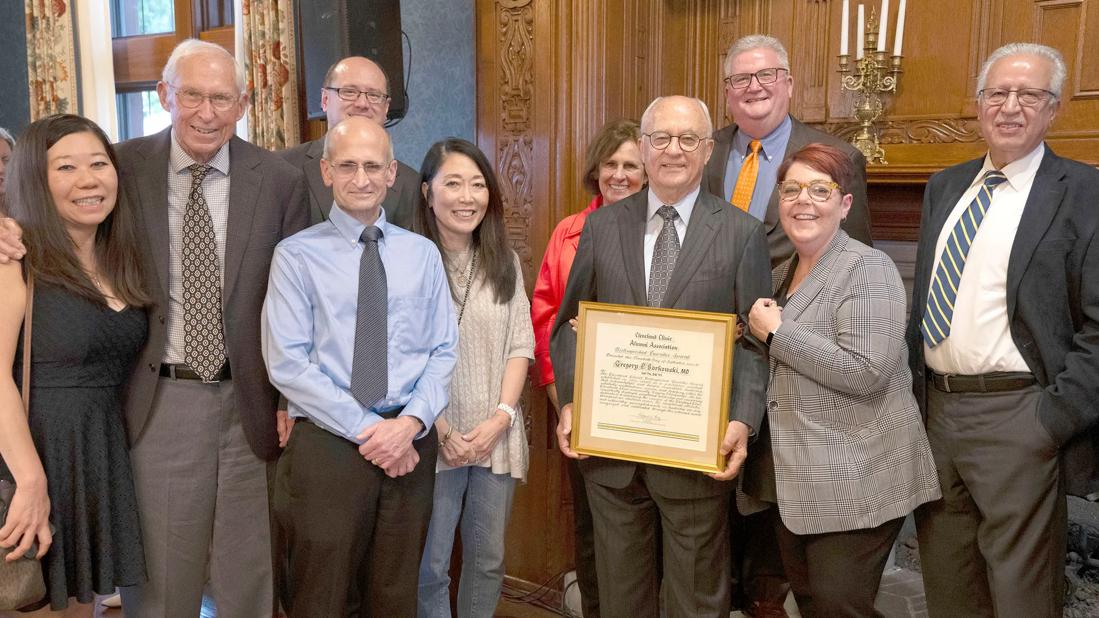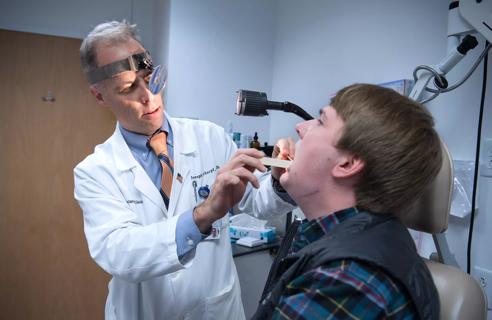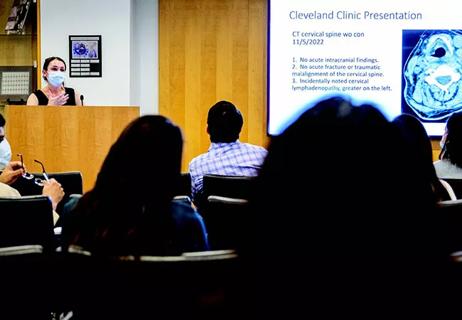Maintaining connections leads to referrals, recruitment and more

Organization alumni programs are gaining renewed interest. From brand advocacy to business development and talent acquisition opportunities, human resources (HR) teams recognize the value of maintaining a strong bond between employer and employee after the two have parted ways.
Advertisement
Cleveland Clinic is a non-profit academic medical center. Advertising on our site helps support our mission. We do not endorse non-Cleveland Clinic products or services. Policy
At Cleveland Clinic, keeping alumni connected to the organization has been a fundamental aspiration since the very first graduate fellow certificate ceremony, held in 1923.
To ceremony graduates, one of Cleveland Clinic’s founders, George W. Crile, MD, expressed: “We would like you to know the permanent staff and Board of Directors feel a great interest in your welfare and we shall follow you as far as possible with our interest and hope you will always remember this is an institution that is a home to which you may always return.”
Through the years, Cleveland Clinic’s Alumni Association has grown to more than 27,000 members, including:
“The goal of the Alumni Association is to strengthen the connection between our health system and our alumni community,” says Melinda Stroh, Senior Director of Alumni Relations and Development at Cleveland Clinic.
Staying in touch builds long-term relationships that can lead to new business opportunities, recruiting, referrals and more. Cleveland Clinic alumni reside in all 50 of the United States and in 84 different countries.
“A strong alumni network is beneficial for both the organization and the healthcare professional,” says Richard Lang, MD, Former Chair, Department of Executive Health and current President of Cleveland Clinic’s Alumni Association. “It fosters collaboration, mentorship, and knowledge-sharing, helping alumni stay connected to advancements in medicine while supporting professional growth and strengthening the institution.”
Advertisement
According to Stroh, there are five key value areas alumni programs can deliver healthcare organizations:
Cleveland Clinic alumni generate thousands of patient referrals each year, positively enhancing the organization’s contribution margins. International alumni, of which Cleveland Clinic has over 2,000, help fill the health system’s patient pipeline. The association works closely with Cleveland Clinic’s International Operations and Global Patient Services teams on the Global Ambassador Program, which has representatives in 19 different countries.
“Our 27,000 alumni serve as a global network of ambassadors and have been called upon as key opinion leaders when we are considering enterprise expansions and partnerships,” Stroh says.
Cleveland Clinic also uses its alumni network to promote continuing medical education (CME) and leadership training programs, and to encourage alumni to return to work at the health system.
"We developed a targeted communication strategy with leaders from the Lerner College of Medicine to engage and recruit graduates at one-, three- and five-years post-graduation, offering personalized conversations about returning to Cleveland Clinic," says Stroh. "Additionally, we actively collaborate with our physician recruitment team to promote opportunities for former trainees to rejoin us as staff."
Cleveland Clinic’s successful alumni relations program can be linked to the organization’s higher reputation rankings.
Advertisement
"Alumni and staff consistently rank our organization and residency programs among the best," says Dr. Lang. "Our goal is for Cleveland Clinic to not only be the premier place to train, but also the top choice for working and receiving care. These values, set by our founders, are deeply embedded in our mission and the Alumni Association is committed to upholding them as our guiding purpose.”
Alumni also contribute to philanthropic giving. In the last 10 years, annual alumni giving at Cleveland Clinic has increased exponentially.
“Of our living alumni, 24% are donors, and their combined total giving is more than $77 million,” Stroh says. “Last year was our best year on record for alumni giving at $18.3 million.”
The key to a successful alumni relations program is engagement.
“Organizations should strive to achieve lifelong alumni commitment by providing access and programming that ensures growth and success,” Stroh says.
With more than 50 engagement tactics, Cleveland Clinic targets alumni through a 3-pronged approach: communication, networking and recognition.
“This approach fosters collaboration and celebrates alumni achievements, ensuring a strong, engaged community that supports both individual growth and the institution’s success,” Dr. Lang says.
Cleveland Clinic alumni benefit from the printed Alumni Connection magazine that is mailed twice annually, an eNewsletter that is sent monthly, at least 40 local and national reception events each year, invitations to Cleveland Clinic-hosted events and speaker series, CME discounts, medical travel assistance, Cleveland Clinic Innovations partnership opportunities, patient referrals and many additional benefits and services.
Advertisement
Awards are presented to five alumni and four future alumni annually, and each year, current trainees are supported with professional development grants. Alumni also have comprehensive online resources at their fingertips, including Cleveland Clinic’s AlumniConnect tool.
With a current AlumniConnect profile, alumni can easily stay connected with each other and receive event invitations and patient referrals. Future tool enhancements include the ability to view job postings, mentorship and volunteer opportunities, and more.
“It can be challenging for organizations to track alumni and keep them continually engaged,” Stroh says. “Alumni programs will benefit from technology similar to AlumniConnect to support engagement and tracking.”
Cleveland Clinic currently has about 2,300 trainees, physician scientists and medical students in the pipeline to become future alumni, which would take the total number of alumni to almost 29,000.
“Every day we receive calls from alumni around the world requesting assistance with various things like training verifications, alumni reception information, contact information or patient referrals,” Stroh says. “Being attentive and responsive to member needs is vital — as is continually looking for new ways to be of service to them.”
The newest tactic Stroh and her team launched is a gift box for new alumni graduates. Graduates are sent the gift after they provide updated contact information.
“We were sending new graduates a certificate and welcome letter,” Stroh says. “Now, we also send this new incentive, and we are already seeing successful results.”
Advertisement
Alumni programs offer benefits beyond their members and organizations, positively impacting healthcare. They facilitate the best possible patient care, help fund programs of interest, inform on current medical treatments and best practices, educate on the latest medical techniques and equipment, and more.
"By staying connected and actively engaged, our alumni play a crucial role in advancing healthcare," says Dr. Lang. "Their collective expertise and contributions not only enhance our institution, but also improve patient care and shape the future of medicine."
Advertisement

A commitment to sharing expertise has fostered a global exchange of ideas

Continuous Improvement model makes success repeatable

A century-old medical tradition inspired the weekly complex-case reviews in Rheumatology

Medical students will complete five weeks of clinical training

Findings about the tool's utility were presented at the American Society of Nephology’s 2022 Annual Meeting

A look at how personal stories sparked an enterprise-wide cultural reset

Interdisciplinary program fosters high-performance teams

Embracing generational differences to create strong nursing teams